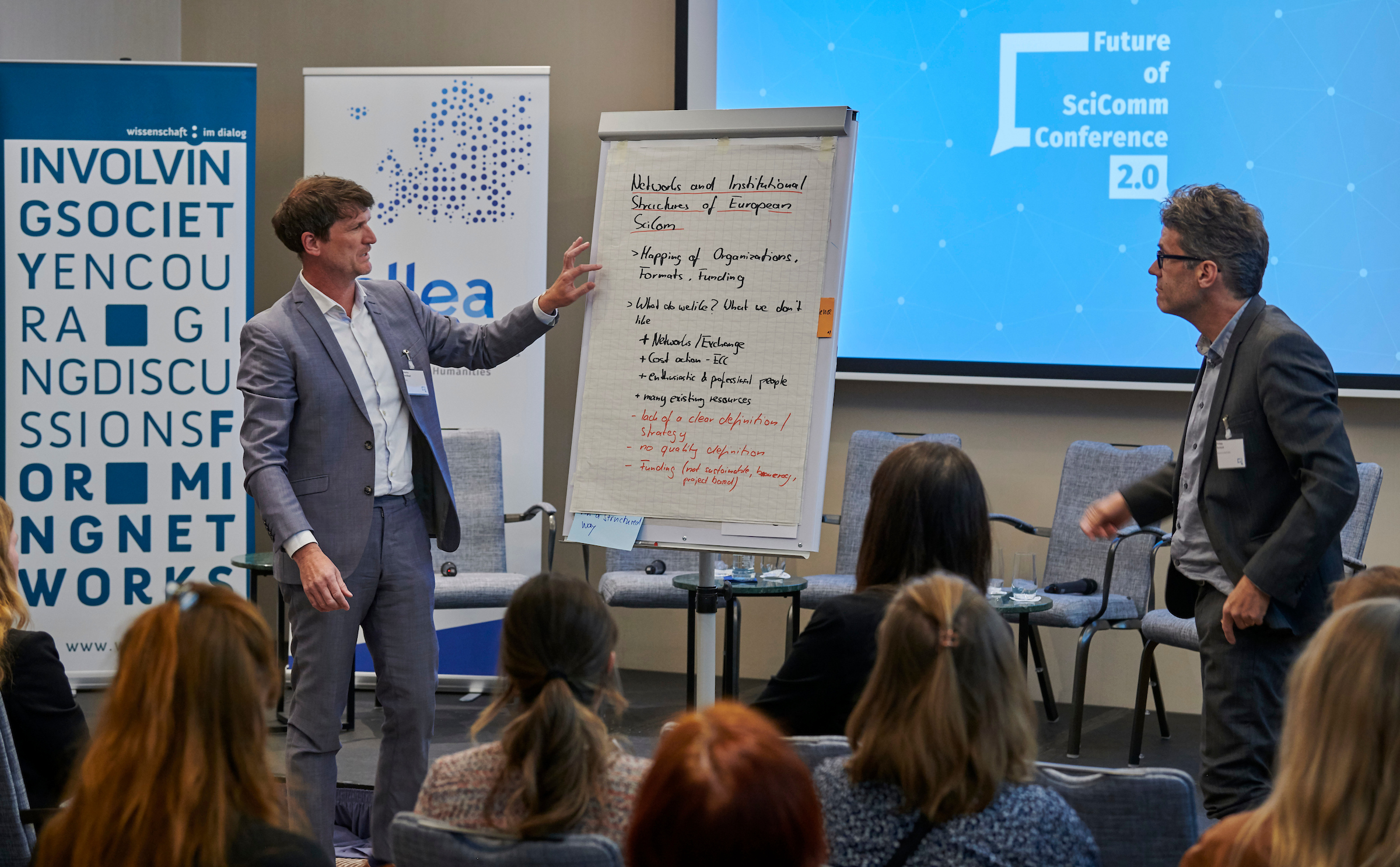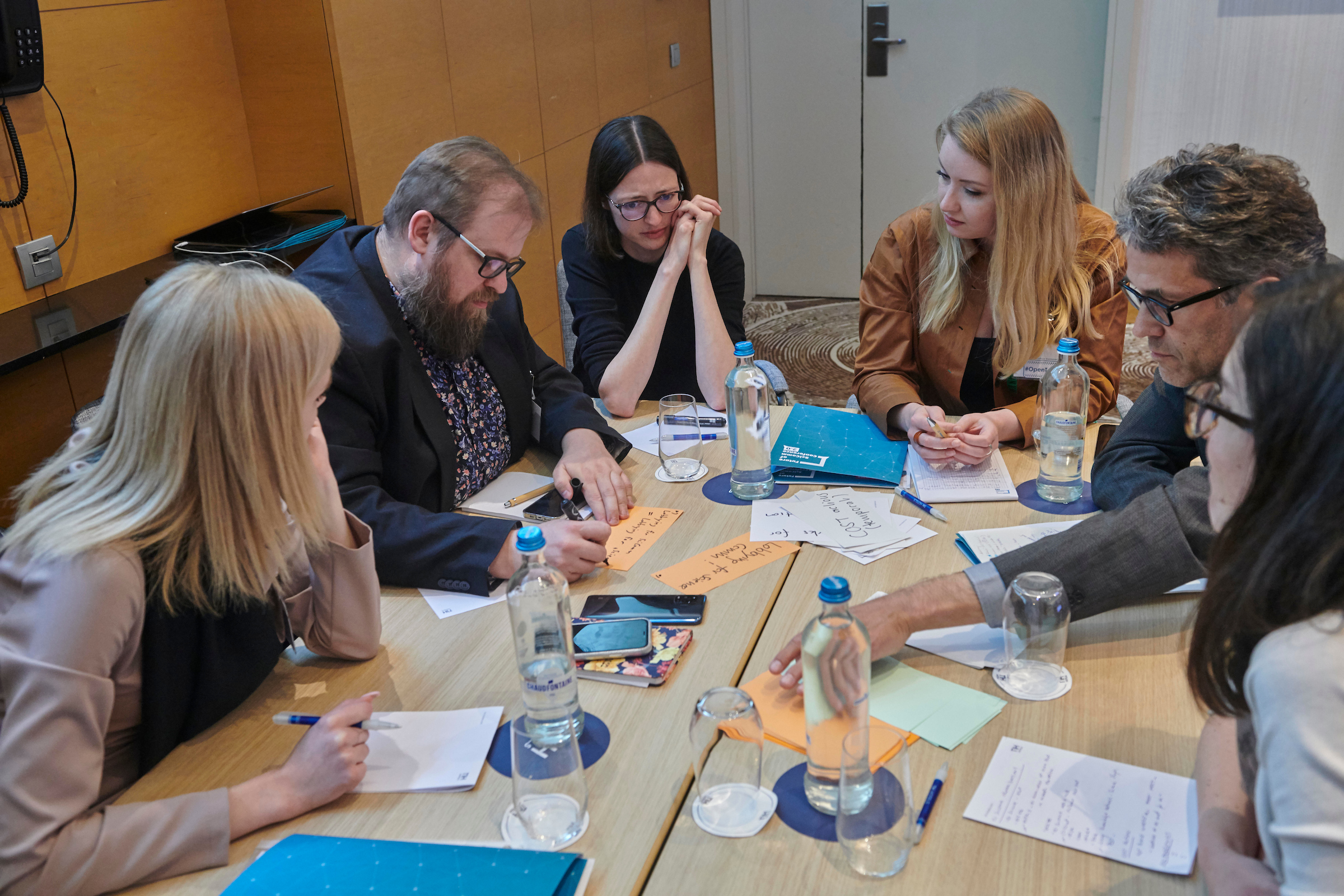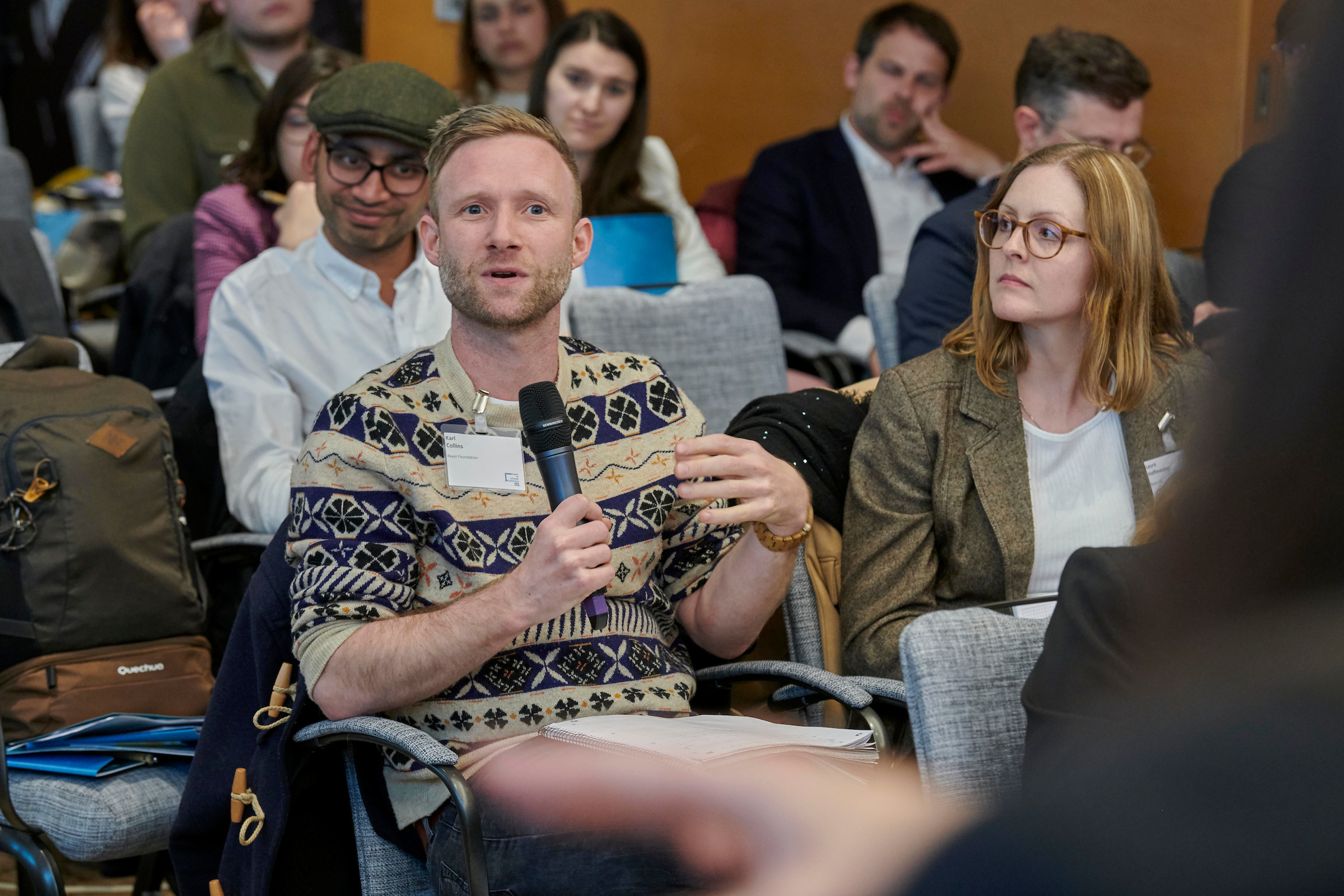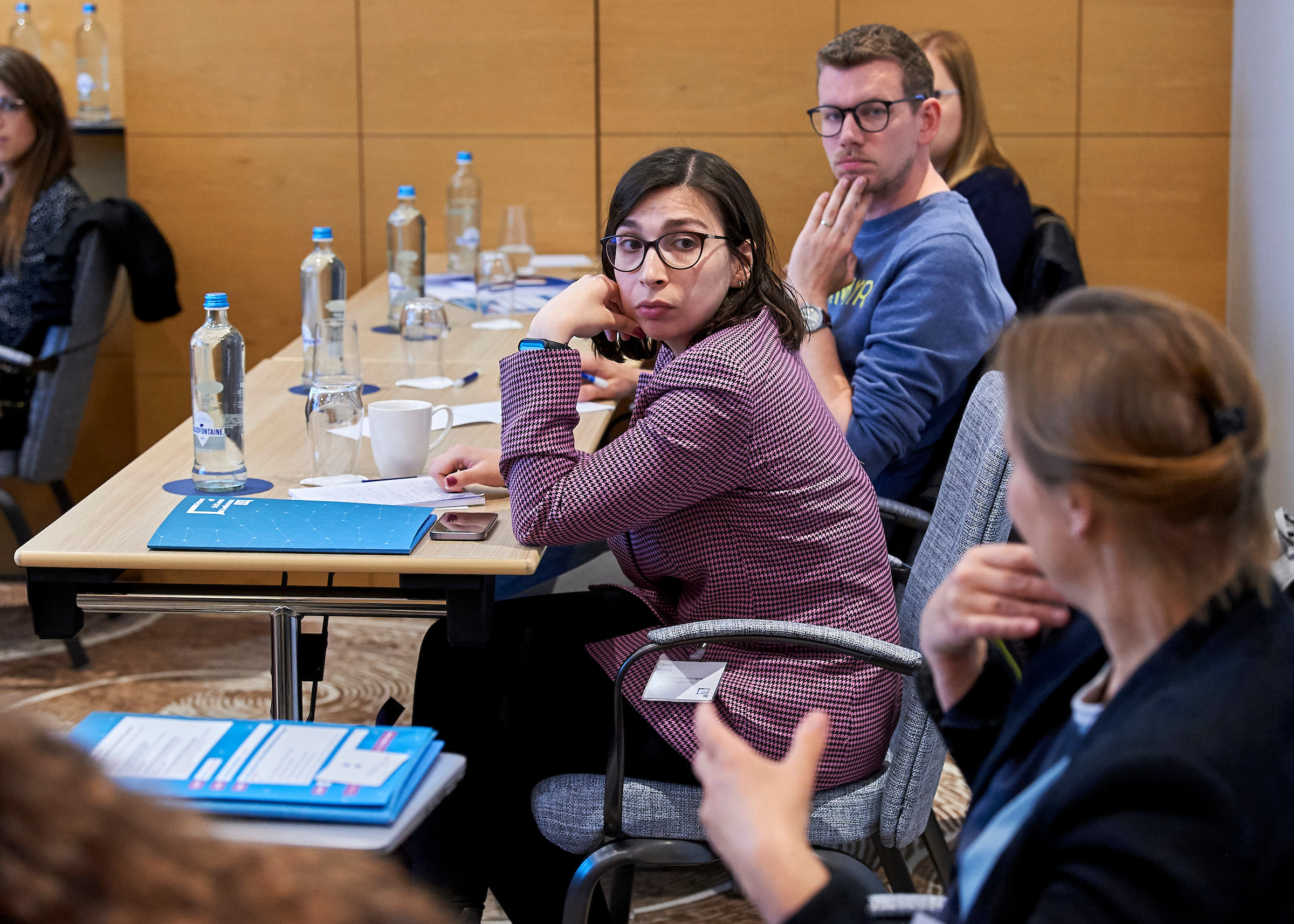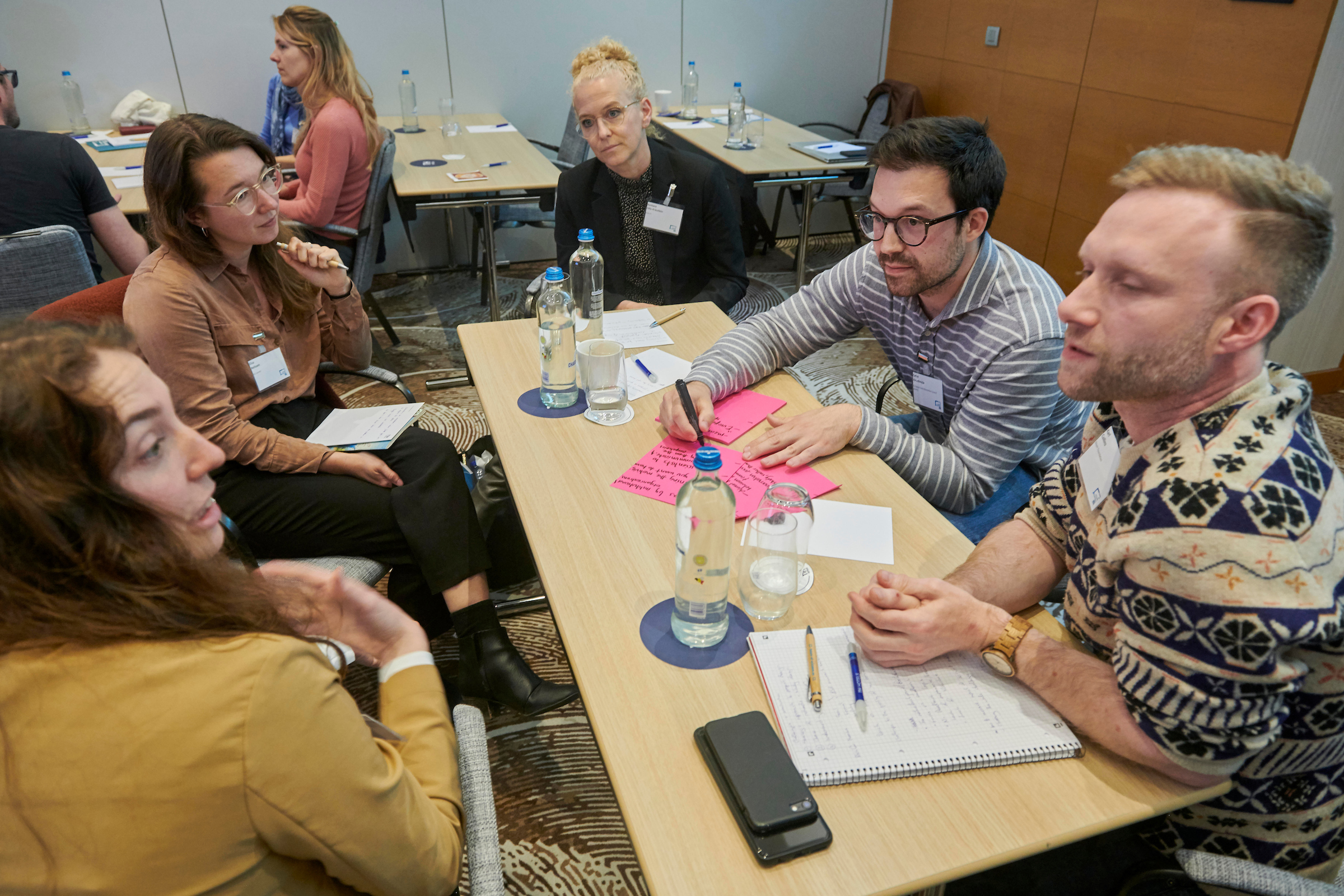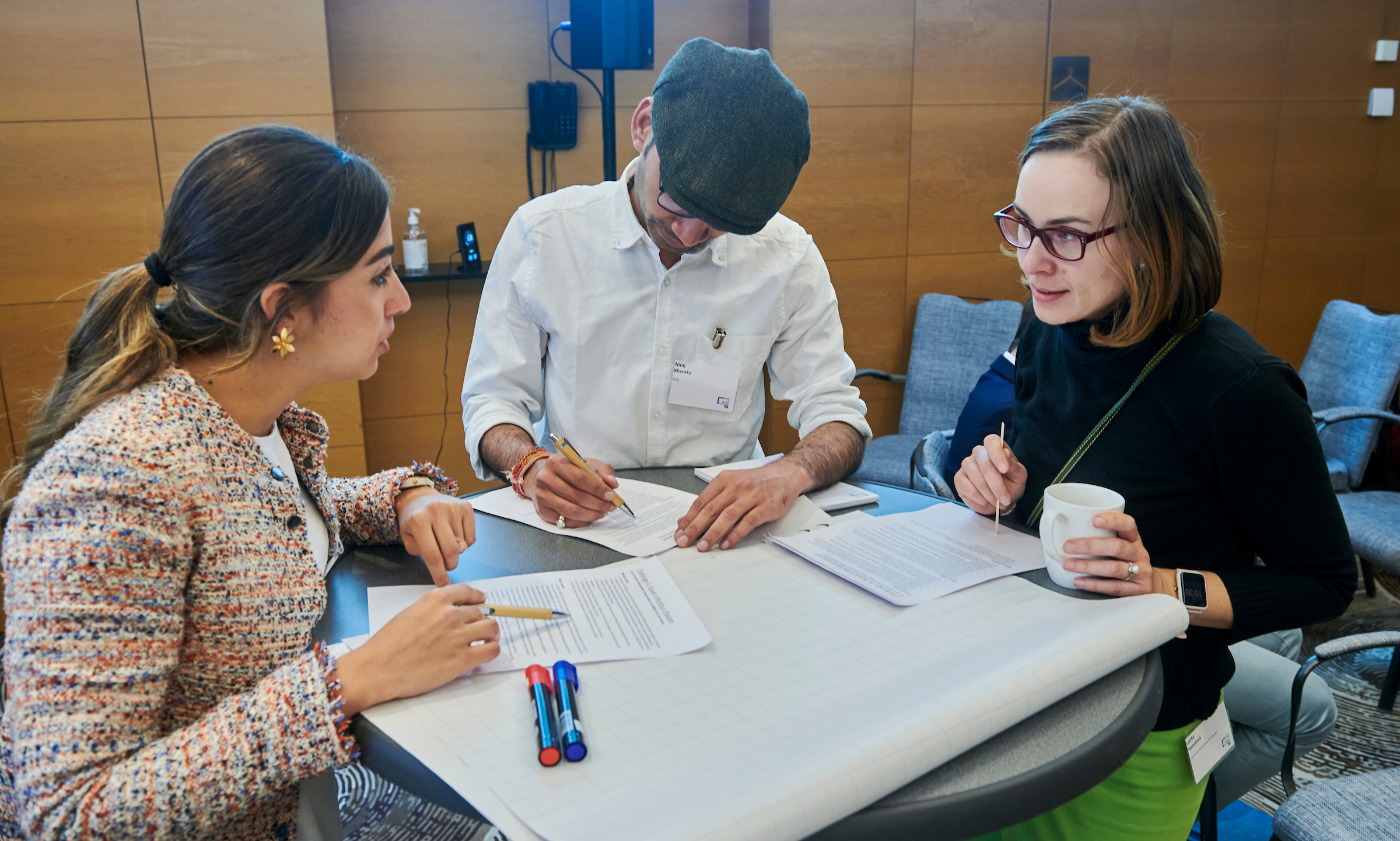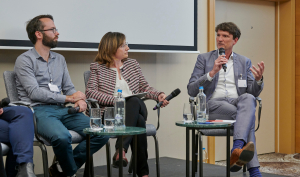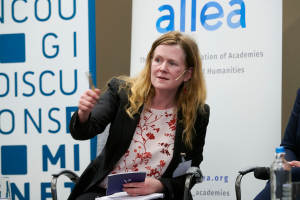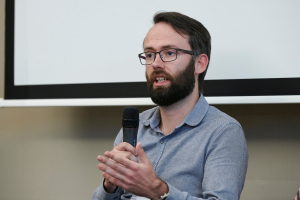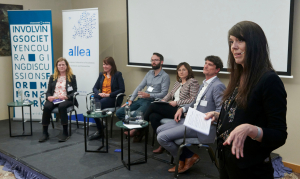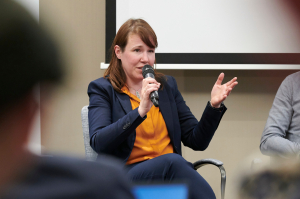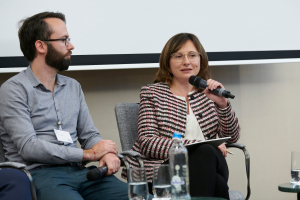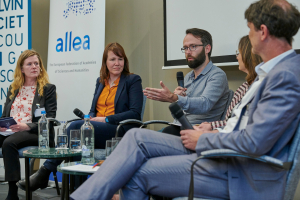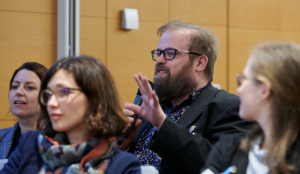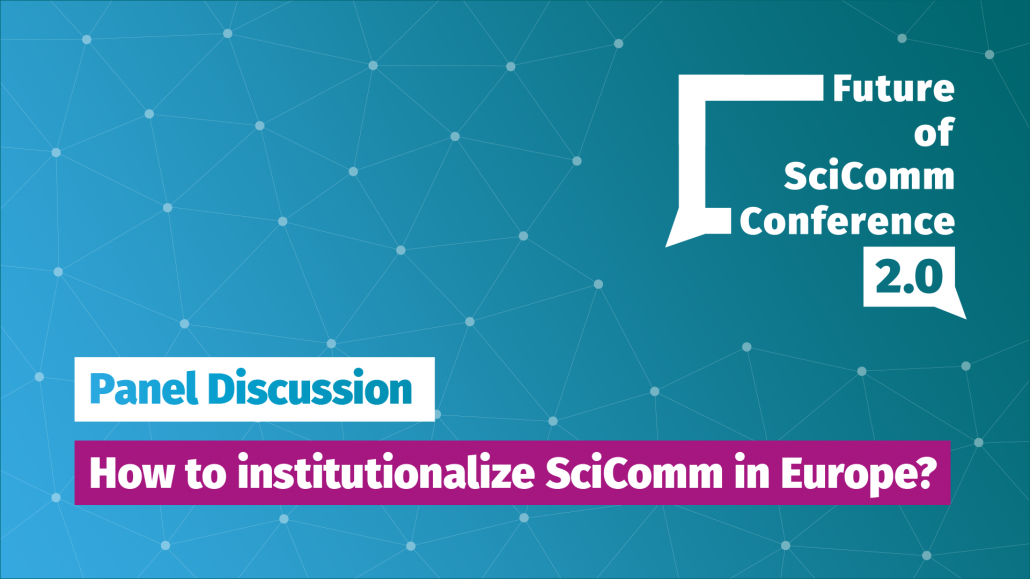The Future of Science Communication Conference: Bringing Science Communicators and Researchers Together
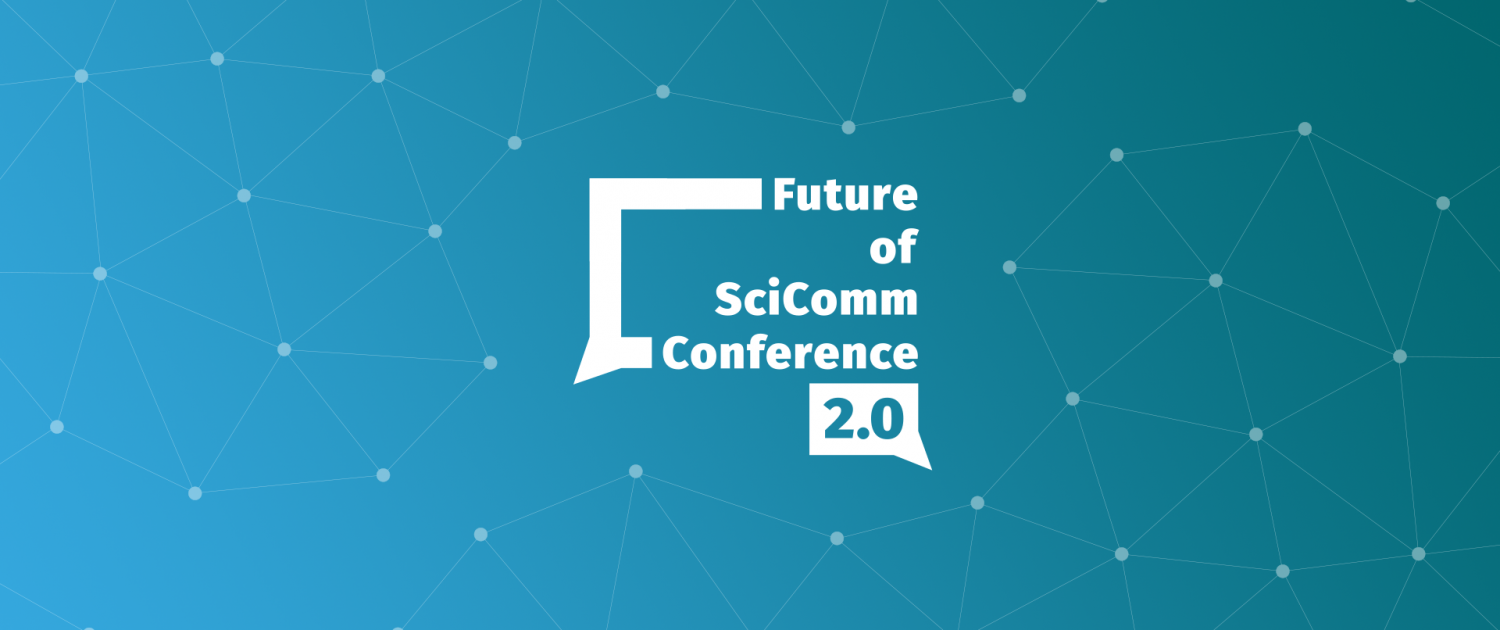
ALLEA and Wissenschaft im Dialog hosted the second Future of Science Communication Conference (FSCC 2.0) in Brussels, which was attended by academics, policymakers, and practitioners to learn from renowned experts in the burgeoning field.
On 26 April, academics, policymakers, and practitioners gathered for the second Future of Science Communication Conference (FSCC 2.0), co-organised by ALLEA and Wissenschaft im Dialog, the organisation for science communication in Germany and funded by the German Federal Ministry of Education and Research, in Brussels to discuss the latest ideas and questions on how to effectively communicate science in the age of social media and the increased access to information and knowledge, no longer mediated by experts in Academia and the Media.
FSCC 2.0 was designed as a follow-up event to the Future of Science Communication Conference that was held virtually in June 2021 and attended by over 1,000 participants. It brought together the science communication community in Europe to discuss relevant topics such as communicating science in the presence of uncertainty, dealing with disinformation, creating open dialogue with the public, and developing institutions and structures for a strategic (re-)orientation of Science Communication in Europe, among others.
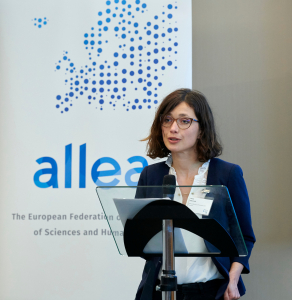
Welcome remarks by Birte Fähnrich (German Federal Ministry of Education and Research) Photo© 2022 HorstWagner.eu
Welcome remarks by Birte Fähnrich from the German Federal Ministry of Education and Research, Antonio Loprieno, President of ALLEA, and Markus Weißkopf, managing director of Wissenschaft im Dialog, were followed by three impulse talks, parallel workshops, and a final panel discussion..
Lessons from the pandemic
Virologist and head of the committee of experts advising the Belgian Government on its Covid-19 strategy, Erika Vlieghe (University of Antwerp) presented some lessons learned about effective science advice during the pandemic, and shared her insights on the future of communicating science during a crisis. “We need to ensure that science and politics remain separate; and we need to communicate the science in a way that doesn’t allow for misunderstanding or misuse,” cautioned Dr Vlieghe.
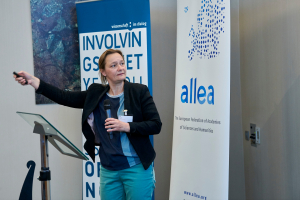
Erika Vlieghe presents lessons for science communicators from the pandemic Photo © 2022 HorstWagner.eu
Massimiano Bucchi (University of Trento) then went on to share his insights into the (inaccurate) stereotypes of the public found in the minds and discourse of policymakers and experts, and their consequences for effective science communication. “Unfortunately, a representation of the public as hostile, sceptical, and ignorant is still widespread among policy makers and experts, supporting a paternalistic and ultimately authoritarian vision of science communication and of science in society. As the literature from the past two decades clearly shows, this representation largely reflects unfounded prejudices,” said Prof Bucchi, one of the leading scholars researching science communication and director of the International Master programme SCICOMM.
In his virtual address to the Brussels audience, Prof Bucchi called for the shift of focus from fighting misinformation and “fake news” to the “quality” of science communication; in particular how to improve, incentivise, reward, and distinguish it from low-quality, ad-hoc, and poorly focused science communication.
The final impulse talk by Uwe Steger, head of public relations at the University of Innsbruck, focused on the future challenges for science communication. Mr Steger called for the incorporation of science mediation work into curricula and the early stages of academics’ careers. Among other suggestions, Mr Steger emphasised the need for increased and systematic funding for research on and training in science communication.
Interactive Workshops
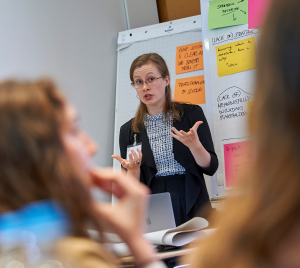 The talks sparked lively discussions and were followed by interactive workshops on four important issues: Communicating Global Challenges: Learning from COVID-Communication and Climate Change; Fake News & Disinformation and the Consequences for the Science-(Communication)-Community; Evidence-based Practice, Impact and Evaluation of SciComm; and Networks and Institutional Structures of European SciComm.
The talks sparked lively discussions and were followed by interactive workshops on four important issues: Communicating Global Challenges: Learning from COVID-Communication and Climate Change; Fake News & Disinformation and the Consequences for the Science-(Communication)-Community; Evidence-based Practice, Impact and Evaluation of SciComm; and Networks and Institutional Structures of European SciComm.
Among others, the workshops debated such questions as “How can we embed science communication within curricula to broaden the scope for the field?” “How to clarify responsibilities for science communicators?” “What is the role of transparency in effective science communication?” “Can we create a common language when discussing the “impact” and “quality” of science communication that we can share across borders?”.
- Workshops at FSCC 2.0
Photo © 2022 HorstWagner.eu
Institutionalising Science Communication
FSCC 2.0 concluded with a hybrid panel discussion on “How to Institutionalise SciComm in Europe?”, which can be watched on YouTube. The panel included David Lodder, communications officer at the European Commission for Research & Innovation, Ionica Smeets, chair of Leiden University’s research group Science Communication and Society, Svetla Tanova, coordinator of the European Science Media Hub, and Markus Weißkopf. It was moderated by Maria Lindholm (Sweden’s Research and Innovation Office in Brussels),
The panel discussed issues such as future challenges for SciComm at the European level, innovative projects in the field today, the question of funding, and ideal institutional landscapes for the field and the paths to get there. Some insights from the panel are highlighted below:
- David Lodder discussed the challenge of communicating complex ideas in a strategic way to a target audience: “I think there are three challenges – trust, strategy, and cooperation – which have to work together. The Eurobarometer survey shows that the public trusts scientists more than policymakers or journalists when it comes to science, so it is very important to empower researchers to communicate. But there needs to be strategy behind the communication. And finally, cooperation with experts in communication to know how best to reach the right audience is crucial.”
- Markus Weißkopf reiterated the need for recognition of science communication work by the scientific community as it could be a powerful motivator for scientists to engage in this essential activity. Elaborating on how to achieve such recognition, he added that “Role models are important. Senior scientists can be influential in motivating younger peers to pursue science communication. And we can initiate prizes for science communication, but we also need to recognise science communication activities as valid work experience when hiring candidates so that it is valued as a skill.”
- Ionica Smeets emphasised that science communication does not need to be performed by every scientist. “I think it is dangerous to talk about broadening careers and ask all scientists to do all aspects; what we see is that young researchers are very motivated to do science communication but there is very little support,” said Dr Smeets. She added that training and funding young researchers to engage in science communication would be relatively inexpensive and would have a big impact.
- Svetla Tanova called for greater exchange of ideas and best-practices between actors, and across borders, in particular with countries and communities who are less privileged. She added that rather than the top-down imposition of standards by EU institutions, science communication conduct and convention should be built from the bottom up by the scientific community.
Photo © 2022 HorstWagner.eu
Watch the full discussion by clicking on the link below.
More documentation of FSCC 2.0 will be published in the coming months, including a report on the policy recommendations from the conference. If you want to receive future updates, please subscribe to the ALLEA newsletter.

